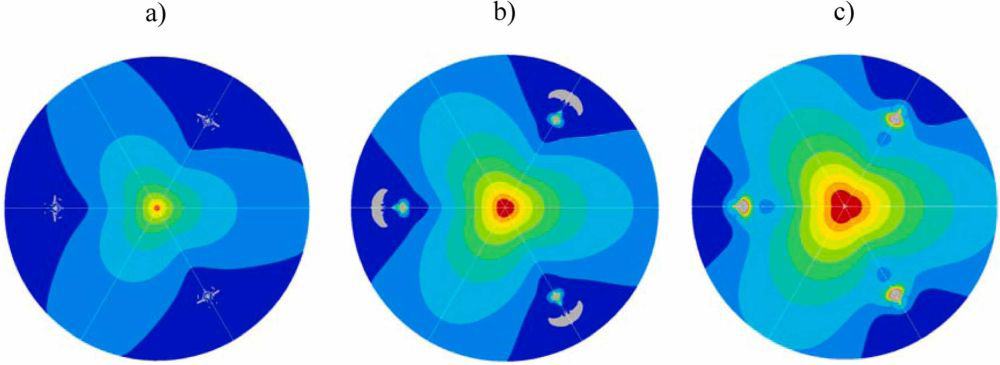Posts by Lisa McDonald
Electronics in space—high-temperature electrical tests reveal potential of various packaging materials for silicon carbide sensors
Silicon carbide electronics are expected to play a role in future space missions to hot celestial bodies, such as Venus and the sun. A new study by researchers at NASA Glenn Research Center investigated the electrical properties of several ceramic and glass packaging materials to determine which would best protect silicon carbide electronics at temperatures of more than 800°C.
Read MoreCeramic and glass business news of the week for November 20, 2023
Mercedes-Benz fast-charging network cleared for takeoff, America Makes announces winners of IMPACT project call, and more ceramic and glass business news of the week for November 20, 2023.
Read MoreA ‘wow’ finding—surface weathering transforms ancient Roman glass into natural photonic crystal
Photonic crystals are manufactured structures used in many advanced optical devices to control the flow of light. Researchers in Italy and the U.S. discovered that an ancient Roman glass fragment naturally formed a photonic crystal structure on its surface through environmental weathering.
Read MoreExpanding possibilities in materials and processing at 84th Conference on Glass Problems
The 84th Conference on Glass Problems welcomed almost 400 attendees to Columbus, Ohio, from Nov. 6–8, 2023. The conference featured numerous talks highlighting ways to improve the efficiency of the glass production process, from raw materials selection to flue gas cleanup.
Read MoreVideo: Build your literacy on energy topics with Stanford’s new learning hub
Many people do not feel they can contribute knowledgeably to energy discussions due to the complex nature of this topic. Stanford University’s new Understand Energy Learning Hub aims to help the public build their energy literacy at their own pace.
Read MoreOther materials stories that may be of interest for November 15, 2023
Glass powder for bleeding and infections, scaling up nano, and other materials stories that may be of interest for November 15, 2023.
Read MoreFinding strength in community—researchers publish freely available data for analyzing ball-on-three-balls strength tests
Until now, values for the effective volume and effective surface of ball-on-three-balls test samples were only available for a small range of geometries and materials. But a new open-access paper, courtesy of researchers from the University of Leoben in Austria, provides tabulated data for a wide range of sample geometries and materials.
Read MoreCeramic and glass business news of the week for November 13, 2023
Numat building world’s first industrial scale MOF manufacturing campus, USGS partners with Arizona to map critical mineral potential, and more ceramic and glass business news of the week for November 13, 2023.
Read MoreString-based extraction could revolutionize lithium production
With the drastic increase in demand for lithium, new sources and extraction methods are needed to secure sufficient supply. Princeton University researchers led development of a new passive method for extraction of lithium from saltwater. The method, if advanced to industrial scale, could significantly decrease both the time and amount of land necessary for lithium production.
Read MoreVideo: Nature-inspired paint offers rapid and reversible color change
Many animals in nature have special pigment cells that allow them to change the color of their skin in response to various stimuli. Now, Northeastern University researchers combined one of those pigments, called xanthommatin, with titanium dioxide to create a paint that can rapidly and reversibly change color in response to light.
Read More







